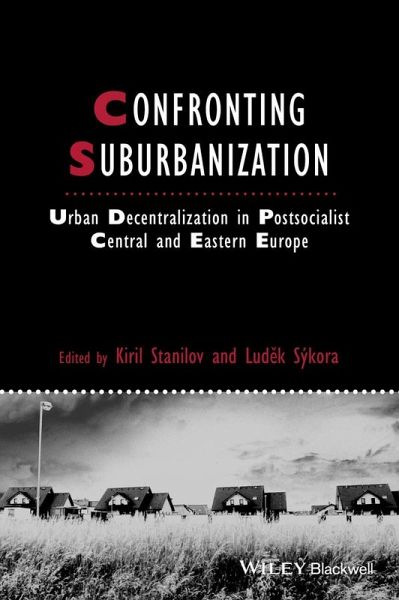
Confronting Suburbanization
Urban Decentralization in Postsocialist Central and Eastern Europe
Herausgegeben von Stanilov, Kiril; Sykora, Ludek
This fascinating book explores and explains the processes of suburbanization in the specific context of post-socialist societies transitioning from one system of socio-spatial order to another. The process is tracked through case studies of seven post-socialist capital city regions - Budapest, Ljubljana, Moscow, Prague, Sofia, Tallinn, and Warsaw, where the forces of urban decentralization have been the strongest during the last 20 years. By highlighting the swift trajectory of their suburbanization, the contributors illuminate key conditions for the phenomenon, and highlight its typical forms and features in a dynamically evolving urban context.
This fascinating book explains the processes of suburbanizationin the context of post-socialist societies transitioning from onesystem of socio-spatial order to another. Case studies of sevenCentral and Eastern Europe city regions illuminate growth patternsand key conditions for the emergence of sprawl.
Breaks new ground, offering a systematic approach to theanalysis of the global phenomenon of suburbanization in apost-socialist context
Tracks the boom of the post-socialist suburbs in seven CEEcapital city regions - Budapest, Ljubljana, Moscow, Prague,Sofia, Tallinn, and Warsaw
Situates the experience of the CEE countries in the broadercontext of global urban change
Case studies examine the phenomenon of suburbanization alongfour main vectors of analysis related to development patterns,driving forces, consequences and impacts, and management ofsuburbanization
Highlights the critical importance of public policies andplanning on the spread of suburbanization
Breaks new ground, offering a systematic approach to theanalysis of the global phenomenon of suburbanization in apost-socialist context
Tracks the boom of the post-socialist suburbs in seven CEEcapital city regions - Budapest, Ljubljana, Moscow, Prague,Sofia, Tallinn, and Warsaw
Situates the experience of the CEE countries in the broadercontext of global urban change
Case studies examine the phenomenon of suburbanization alongfour main vectors of analysis related to development patterns,driving forces, consequences and impacts, and management ofsuburbanization
Highlights the critical importance of public policies andplanning on the spread of suburbanization












